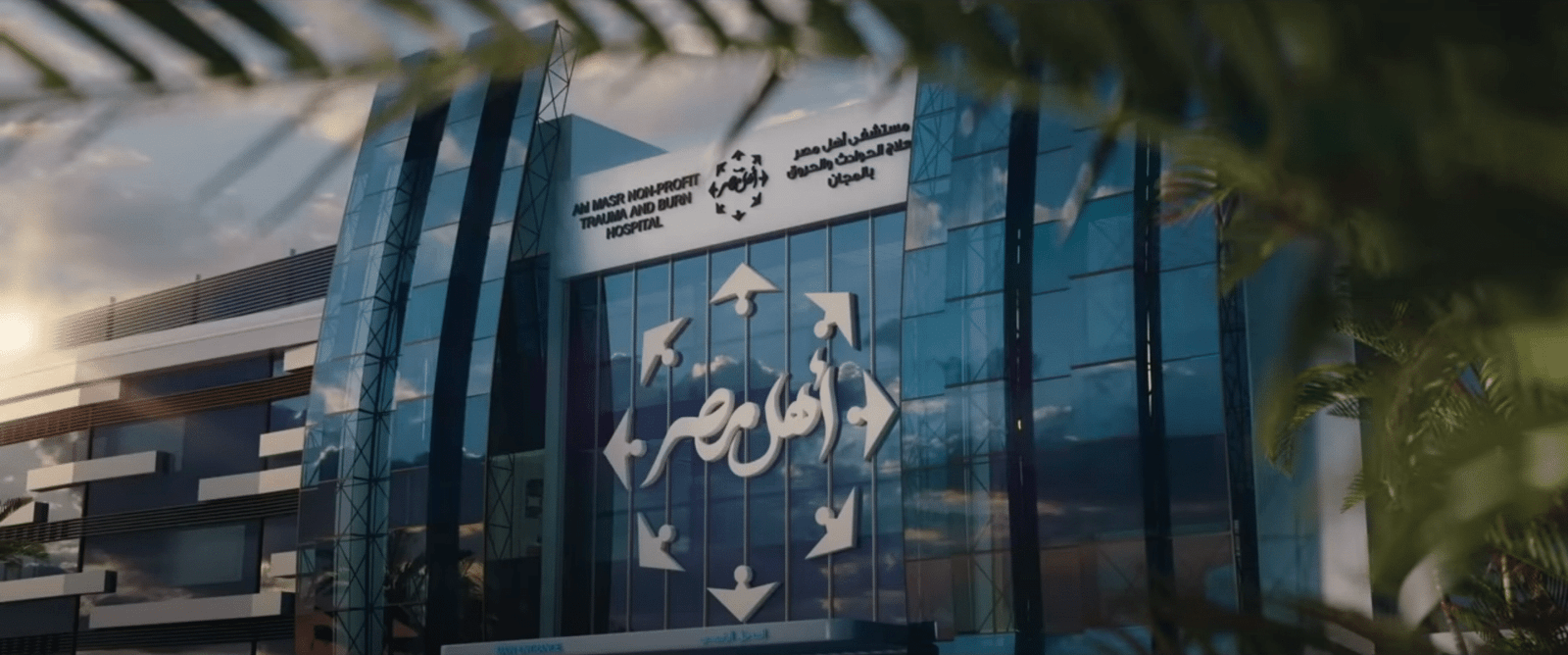Editor’s Note: The injuries suffered by Doha are extremely graphic and disturbing. Dr. Heba El-Swaidy, Founder and Chairwomen of Ahl Masr Burn Hospital where Doha was admitted, has shared pictures of the victim.
We have chosen not to include these images in this article due to their distressing nature. We have been impacted deeply by those images and don’t want to subject our readers to the same distress. If you wish to see them, you can find them on El-Swaidy’s Facebook post, but we warn you of their highly disturbing content.
The tragic case of Doha, a 6-year-old girl who endured horrific torture at the hands of her own mother, has ignited a wave of outrage and anguish across Egypt.
Dr. Heba El-Swaidy, Founder and Chairwomen of Ahl Masr Burn Hospital where Doha was admitted, exposed the shocking abuse. Doha arrived with severe burns, the result of her mother repeatedly placing her hands and feet in boiling water as a form of punishment.

This sadistic abuse led to complications including gangrene, requiring the amputation of Doha’s fingers and legs.
Doha’s mother, M.S., stands accused of torture and is in custody awaiting trial. She maintains that the burns were accidental, but medical professionals and investigators vehemently refute this claim.
A Disturbing Pattern
Sadly, Doha’s story is not an isolated incident in Egypt. Child abuse remains a pervasive and deeply troubling issue. Recent years have seen multiple high-profile cases of horrifying brutality against children, including the tragic death of a 5-year-old girl at the hands of her grandmother. These cases illuminate the grim reality that many Egyptian children live in fear, subjected to unimaginable violence within their own homes.
Steps Taken, More Still Needed
While the Egyptian government has implemented some measures to address child abuse, such as the 2019 law criminalizing it and the creation of a national council for child protection, the consensus is that much more needs to be done. Systemic change is crucial to protect vulnerable children and hold perpetrators accountable.
What Happens to Doha and Other Victims?
The immediate concern is for Doha’s physical and psychological recovery. Beyond medical treatment, she will require extensive rehabilitation and long-term psychological support to cope with the trauma and life-altering injuries she has endured. The involvement of child protection services will be instrumental in ensuring her safety and well-being, potentially including placement in a safe environment away from her abuser.
For other victims of child abuse, the path to healing is complex and challenging. The availability of resources like therapy, counseling, and support groups is vital. In the long term, breaking the cycle of abuse requires societal changes that empower children and create a culture where any form of violence against them is unequivocally condemned.
Key Actions for Change
- Raising Awareness: Widespread public education campaigns are needed to break the silence around child abuse, encouraging the reporting of suspected cases and shifting social norms to reject any justification for violence against children.
- Strengthening Laws and Enforcement: Further strengthening of laws concerning child abuse is vital, including harsher punishments for perpetrators and more robust mechanisms for reporting, investigating, and prosecuting abuse cases.
- Comprehensive Child Protection System: Developing a national system for child protection with a central coordinating agency and local services is imperative. This system should provide immediate response, safe havens for victims, and long-term support for recovery.
- Training and Empowerment: Training for professionals who interact with children (teachers, doctors, social workers) is necessary to equip them with the skills to identify signs of abuse, intervene appropriately, and support victims.
- Empowering Children: Age-appropriate education and awareness programs for children themselves should emphasize their rights, teach them how to recognize abuse, and encourage them to speak out and seek help.
The case of Doha serves as a stark reminder of the urgency to address child abuse in Egypt. It is a complex problem, but with concerted effort, commitment to lasting change, and a focus on protecting the most vulnerable, the hope is that Egypt can create a society where all children experience the safe and nurturing childhood they deserve.
Sure, we can add a section at the end of the article about how to donate to Ahl Masr Hospital.
How to Donate to Ahl Masr Hospital
Ahl Masr Hospital is a non-profit organization that provides specialized medical care to victims of burns and trauma in Egypt. The hospital relies on donations to cover the costs of treatment, rehabilitation, and research.
There are several ways to donate to Ahl Masr Hospital:
- By phone: Call 16863 to make a donation.
- By bank transfer: Donate to the Ahl Masr Foundation for Development account number 9899 at any bank in Egypt.
- By SMS: Send a text message to 9899 with the amount of your donation (in Egyptian pounds).
- At Fawry machines: Donate to Ahl Masr Hospital through the nearest Fawry machine.
Your donation will help to provide life-saving care to children and adults who have been injured by burns or trauma. Thank you for your support










What do you think?
It is nice to know your opinion. Leave a comment.